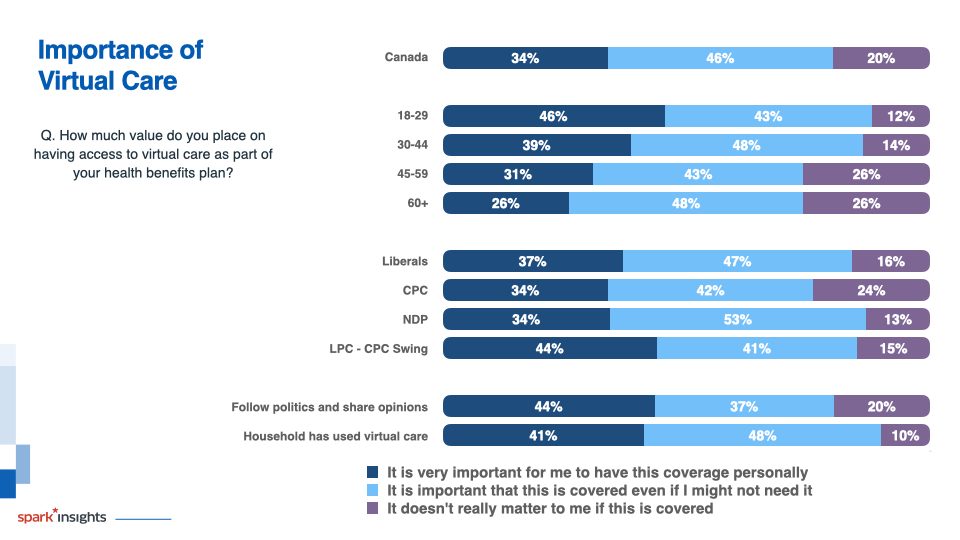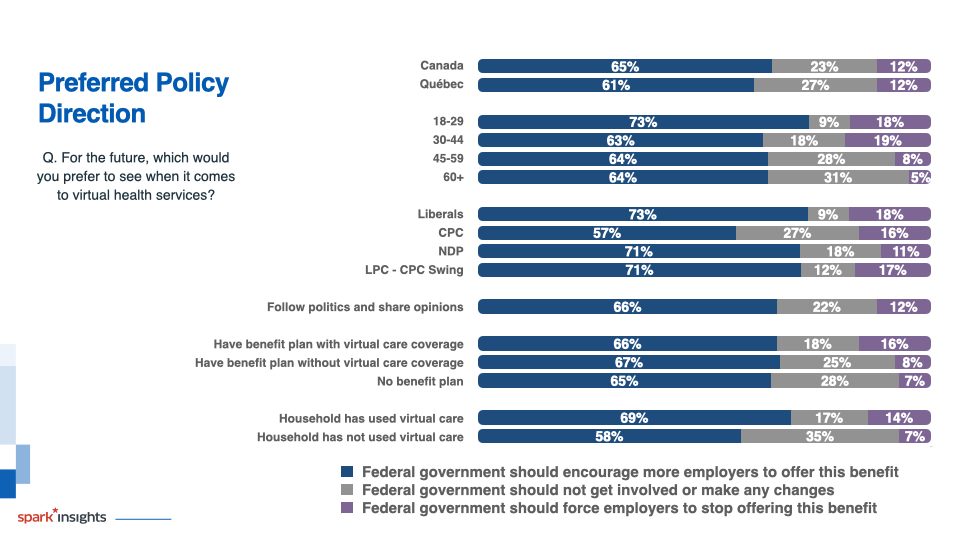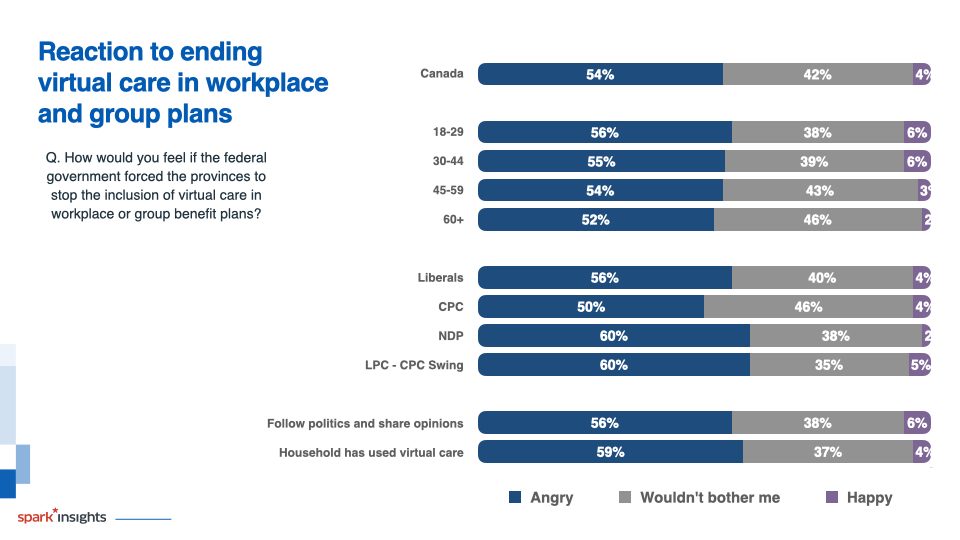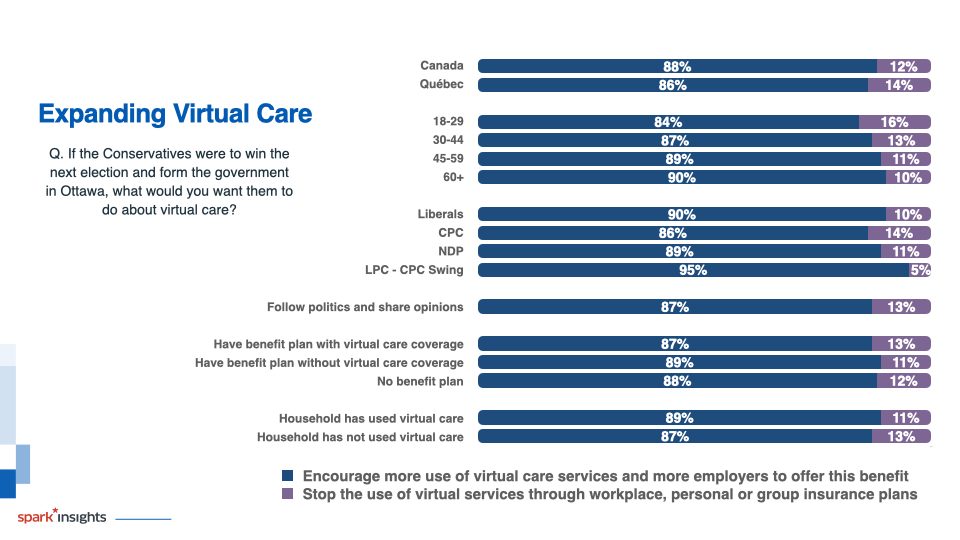Subscribe for more!
Subscribe to our newsletter for insights and articles on wide ranging issues including reputation management, branding, advertising, awareness, advocacy, and communications. You can unsubscribe anytime.
Follow us on social:

More than half of Canadians say they would be angry if the federal government forced provinces to stop allowing employers to cover virtual care visits.
As federal and provincial governments continue to look for new ways to address concerns Canadians have with the current healthcare system, policy discussions have turned to the management of access to virtual care options. A Health Canada memo suggests the federal government is considering intervening to prevent workplace and group benefit plans from offering virtual care coverage at no cost to employees and their families.
spark*insights conducted an online survey of 1,815 adult Canadians to hear how they feel about virtual care and the potential changes to how these services can be accessed. Here’s what we found:
Canadians value employer-funded virtual care, and want to see the government support it
4-in-5 Canadians now say it is important for virtual care to be covered in their health benefits plan, regardless of whether they expect to need to use it.

Two-thirds of Canadians want to see the federal government encourage more employers to offer virtual care through benefit plans, with only 12% supporting a reduction.

Turning to the current policy debate, over half (54%) of Canadians said they would be angry if the federal government intervened with the provinces to stop workplace and group benefits plans from offering virtual care coverage, including at least half of all voters for the three main national parties. 60% of swing voters currently open to voting for either the Liberals or Conservatives would also be angry if the federal government stopped virtual care from being offered through benefit plans.

In a scenario where a new government takes power after the next election and faces the same decision the Liberals are making now, Canadians overwhelmingly prefer to see the federal government encourage an increase in the amount of virtual care services offered through benefits plans (88%) over stopping this practice (12%).
Swing voters currently open to voting for either the Liberals or Conservatives in the next federal election are even more in favour of expanding virtual care with 95% saying they prefer this approach.

Canadians from all walks of life are using employer-funded virtual care, and see significant benefits from it
Canadians see tangible advantages to more people using virtual care through employer-funded benefits plans, regardless of whether they currently have access:
Alex Kohut, Senior Director of spark*insights: “Employer-funded virtual care helps promote access to care in a time of severe system shortages. What was once an uncommon workplace benefit prior to 2020 is now a service that many Canadians have used and depend on. Our polling suggests many Canadians have become very attached to these benefits and it may now be politically damaging for any party to implement changes that are perceived as taking away virtual care coverage from Canadians.”
Findings are drawn from an online survey of 1,815 adult Canadians conducted from August 3 to 7, 2024 on behalf of Dialogue Health Technologies. Results are weighted according to age, gender, region, education and past vote to be representative of the general voting population.
spark*insights is led by Bruce Anderson, one of Canada’s leading and most experienced public opinion researchers. From polling and research to analysis and guidance, we help organizations, uncover the factors driving or influencing public perception to gain valuable insights into the shape and movement of the landscape.